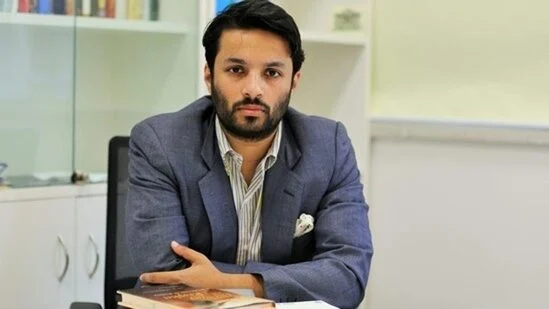A prominent Political Science professor, Ali Khan Mahmudabad, was arrested by Haryana state police in Delhi following a controversial social media post criticizing a military briefing on Operation Sindoor, a strike targeting nine terror camps in Pakistan and Pakistan-administered Kashmir.
The operation, conducted before a ceasefire agreement between India and Pakistan, was a direct retaliation for a terrorist attack in Pahalgam that claimed 26 civilian lives.
Mahmudabad, an associate professor and head of the Political Science department at Ashoka University in Haryana, posted comments questioning the optics of using female Muslim defense officers, like Colonel Sofia Qureshi, in the briefings.
Ali Khan Mahmudabad, a Political Science professor at Ashoka University, critiqued the use of female Muslim officers in military briefings on social media.
The arrest stemmed from a complaint filed by Yogesh Jatheri, a leader of the BJP youth wing, alongside objections from the Haryana State Commission for Women.
Authorities charged Mahmudabad under legal sections related to communal harmony and incitement, asserting that his remarks could disrupt social peace.
According to a police statement, the arrest was specifically due to the nature of his comments, which they deemed inflammatory.
However, the professor, who’s a Cambridge-educated scholar, has claimed his words were misinterpreted, insisting he meant to highlight broader issues rather than offend.
In his social media post, Mahmudabad raised concerns about what he saw as hypocrisy in praising female Muslim officers while ignoring structural reforms.
He also mentioned the need to protect victims of mob lynchings and address arbitrary demolitions, framing his critique within a larger context of societal challenges.
This perspective, while sparking significant online debate, drew sharp criticism from certain groups who viewed it as an attack on right-wing policies and military efforts.
Reactions to the arrest have been swift and polarized.
The academic community, including colleagues at Ashoka University, has condemned the action as an attempt at censorship and harassment, arguing it stifles free expression.
Opposition parties have echoed this sentiment, with AIMIM chief Asaduddin Owaisi labeling the arrest “utterly condemnable.”
Several political leaders and scholars have voiced support for Mahmudabad, emphasizing the importance of academic freedom in democratic societies.
Meanwhile, the context of Operation Sindoor remains critical to understanding the controversy.
Launched as a response to escalating tensions after the Pahalgam attack, the military strike underscored ongoing conflicts between India and Pakistan.
The use of media briefings, led by officers like Colonel Qureshi, aimed to convey transparency, yet Mahmudabad’s critique of their presentation ignited this legal and political storm.
Additionally, an open letter signed by over 1,200 individuals, including prominent academics, has demanded an apology for the arrest, highlighting widespread concern over academic freedom.
As the case unfolds, it continues to draw attention to the delicate balance between free speech and national security.
The professor’s legal team is preparing to challenge the charges, while public discourse online and offline remains heated.
For now, the arrest of Ali Khan Mahmudabad stands as a focal point in debates over expression, policy, and the role of academics in critiquing governmental actions.
The charges against Mahmudabad include allegations of promoting enmity between groups, reflecting the authorities’ stance on communal harmony.

